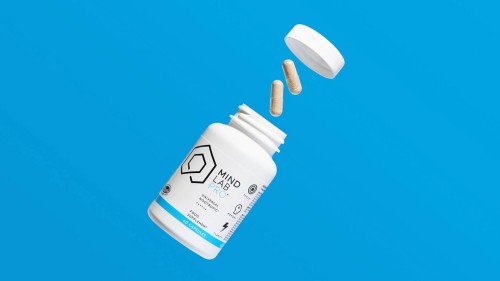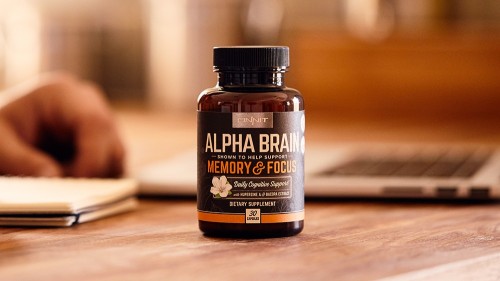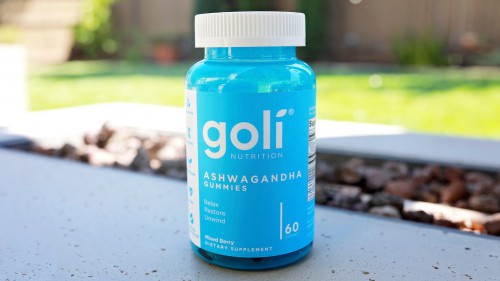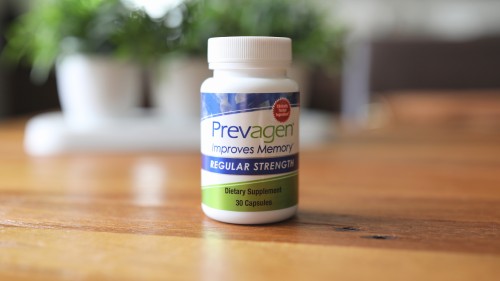WellnessVerge is reader-supported. We may earn a commission when you make a purchase through the links on this page. Learn more about our process here.
SuperBeets Memory & Focus Review: A Dietitian’s Expert Take
Published on July 9, 2021
Medically Reviewed by Anthony Dugarte, MD
SuperBeets Memory & Focus contains a number of ingredients that are shown to improve blood flow to the brain and BDNF, but the research on improving cognitive performance is still unclear. Despite this, SuperBeets is a well-priced supplement that may help with cognitive functioning and general brain health.


|
Pros
|
Cons
|
What Is SuperBeets Memory & Focus?
SuperBeets Memory & Focus is a food-based daily chew from HumanN made to support blood flow to the brain and BDNF (brain-derived neurotrophic factor), a neuroprotein involved with cognitive functioning.
HumanN, the company behind SuperBeets, focuses on functional foods and supplements that can enhance nitric oxide production to support health.
Nitric oxide is a gas produced in the body that increases vasodilation, supports the function of endothelial cells, protects nerve cells from damage, and increases blood flow to the brain. (1)
Cognitive function is partially dependent on blood flow to maintain balance and support brain cell metabolism.
Decreased blood flow to the brain (affected by conditions such as hypertension and heart disease) is linked to general cognitive dysfunction and Alzheimer’s disease. A higher brain blood flow is associated with improved executive function, attention, and memory. (2, 3, 4)
BDNF has roles in maintaining brain health through sustaining function and improving signaling between neurons.
Levels of BDNF in the brain may be associated with certain psychiatric and neurodegenerative disorders. Increasing BDNF production in the brain may improve symptoms of certain brain pathologies. (5)
SuperBeets Memory & Focus is a daily chew claimed to support memory and brain health, promote blood flow, support mental alertness and focus, and help reduce oxidative stress.
This supplement contains a formula of beetroot powder, patented resveratrol, and coffee fruit extract.
To take this supplement, you only need one chew per day. SuperBeets Memory & Focus should be taken daily, and results are often seen after taking consistently for a minimum of one month.
Evaluation of Ingredients
Beetroot Powder, 300 mg
Beetroot powder comes from the dehydration and grinding of beets. Beetroot contains the compound nitrate, which is converted to nitrite and subsequentially nitric oxide. (6)
It is also one of the plants with the highest antioxidant activity and has phytochemicals, including betalains, flavonoids, polyphenols, and saponins.
A 2020 review on beetroot found that it improved endothelial function, increased vasodilation, decreased systolic and diastolic blood pressure, and inhibited platelet aggregation. (7)
In an earlier 2015 review, beetroot juice as a part of a high nitrate diet increased blood flow in the frontal cortex, a brain region responsible for cognitive functions. (8)
This same review noted that there was limited research available on the effects of beetroot supplementation and cognitive performance.
One available study found that supplementation with 250 mL of beetroot juice for 14 days improved simple reaction time in older adults with type 2 diabetes when compared to a placebo.
A separate study found that intake of 140 mL of beetroot juice for 3 days in healthy older adults did not improve cognitive function.
Summary:
Beetroot contains nitrates that can improve cerebral blood flow, which can be beneficial to brain health. However, studies on the effectiveness of beetroot on cognitive function are limited, and an optimal dose or length of supplementation remains to be unknown.
Veri-te Resveratrol, 150 mg
Resveratrol is a type of polyphenol produced in foods such as red grapes, cocoa, blueberries, and cranberries.
Studies find that resveratrol is effective in improving cerebrovascular health by acting as an antioxidant, reducing inflammatory markers, increasing nitric oxide activity, and increasing BDNF. (9)
A 2019 review found that resveratrol supplementation between 75 to 1000 mg has been shown to increase blood flow and vasodilator function to the prefrontal cortex and activation of this brain region. (10)
One 2017 study involving patients with mild cognitive impairment and long-term supplementation of resveratrol (200 mg/day) with quercetin (320 mg/day) for 26 weeks found that resveratrol supplementation improved memory retention and functional connectivity between the hippocampus and several areas of the brain when compared to a placebo. (11)
Summary:
Resveratrol improves cerebrovascular health through several mechanisms, but there is limited research on resveratrol’s potential in improving cognitive performance.
Coffee (Coffee Arabica) Fruit Extract, 100 mg
Coffee fruit, also known as a coffee cherry, is the small stone fruit produced by the coffee plant and is rich in polyphenols.
A small 2013 clinical study found that single-dose supplementation with 100 mg whole coffee fruit concentrate powder increased plasma BDNF by 143% compared to a placebo. (12)
Concerning cognitive function, a small 2021 study found that older adults with mild cognitive impairment had decreased reaction time and improved accuracy in behavioral tasks after supplementation with 100 mg of whole coffee cherry extract compared to a placebo. (13)
Researchers also found that supplementation increased BDNF levels by 41%, increased the activity of glutamate (a neurotransmitter), and increased the connectivity between different regions of the brain.
Summary:
The coffee fruit extract is shown to increase BDNF levels and may improve cognitive function, but there is limited research on its benefits for cognitive performance.
Support for Claimed Benefits
Below is our summary of the available evidence for the claimed benefits of SuperBeets Memory & Focus based on the available research:
| Supports memory and brain health | 4/5 |
| Promotes brain blood flow | 5/5 |
| Supports mental alertness and focus | 3/5 |
| Helps reduce oxidative stress | 5/5 |
All of the ingredients in SuperBeets Memory & Focus have strong evidence supporting their antioxidant activity.
This supplement also has strong evidence supporting that all ingredients can help increase blood flow to the brain.
While there is good evidence that increased blood flow to the brain may help brain health, there is limited research on whether cerebral blood flow improves focus, mental alertness, or memory.
Side Effects, Safety, and Dosage
A dose of SuperBeets Memory & Focus is one chew daily, which helps make this supplement easy and convenient to take.
While this supplement can be taken at any time, HumanN notes that some prefer to use it earlier in the day to help support their cognitive function during the day.
This supplement does not contain GMOs, artificial sweeteners, preservatives, or synthetic colors. SuperBeets Memory & Focus is also gluten-free and vegan.
The coffee fruit extract present in SuperBeets is decaffeinated, so there is no risk of contributing to daily caffeine limits.
A potential side effect of beets is beeturia. Beeturia is a red to pink discoloration of urine or bowel movements due to poor breakdown of the pigments in beets. (14)
This effect is prevalent in 10–14% of the population and may increase amongst individuals with an iron deficiency or malabsorptive condition.
A high intake of nitrate from beets may increase the production of N-nitroso compounds, which are known carcinogens, but there is little research on health risks associated with beetroot. (15)
Resveratrol may cause side effects including nausea, vomiting, diarrhea, and liver dysfunction at doses of 2.5 g or more per day for patients with non-alcoholic fatty liver disease.
This particular supplement only contains 150 mg of resveratrol per serving, which is significantly less than the amount required to experience side effects.
If you follow the recommended dosing for SuperBeets Memory & Focus, you will likely have a lower chance of experiencing these side effects.
High doses of resveratrol may interact with medications and enhance the activity of anticoagulants, antiplatelet drugs, and NSAIDs. (16)
Before starting this supplement, be sure to speak with your doctor first to see if it is right for you.
Cost and Where to Buy
The cost of a one-month supply of SuperBeets Memory & Focus is $39.95 if making a one-time purchase.
Discounts are available if you choose to start a subscription to the supplement:
- A 1-month supply is $36.95/bag (a 7% discount)
- A 3-month supply is $29.98/bag (a 24% discount)
- A 6-month supply is $28.32/bag (a 29% discount)
SuperBeets Memory & Focus is available to purchase at GNC for $39.99, with a 10% discount available if you choose the Auto-Deliver function before checkout. It is also available for the same price on Amazon.
If you’re not satisfied with your product, HumanN offers a 90-day money-back guarantee on used and unused products.
SuperBeets is a moderately priced brain health supplement that offers discounts for subscriptions and has a great 90-day money-back guarantee on purchases.
Comparison to Alternatives
SuperBeets Memory & Focus claims to be unique by being the only food-based cognitive chew with unique compounds to promote blood flow to the brain.
Indeed, all of its ingredients do offer some ability to promote cerebral blood flow.
Comparatively, other brain health supplements may only include a few ingredients to support blood flow.
If taking capsules and tablets isn’t your thing, there are other brands that offer gummies to support brain health, such as Neuriva or Focus Factor.
Some of these nootropic alternatives are more expensive than SuperBeets Memory & Focus but contain other brain health ingredients such as phosphatidylserine, B vitamins, ashwagandha, or DHA.
SuperBeets Memory & Focus is unique in its formula for promoting cerebral blood flow and is cheaper than other brain health gummies.
Other supplements may offer different nootropic ingredients, but SuperBeets Memory & Focus appears to be a good deal.
The Bottom Line
Overall, SuperBeets Memory & Focus live up to HumanN’s goal to create supplements to help with nitric oxide production and blood flow to the brain.
While increased cerebral blood flow is associated with improved cognitive function, I think the ingredients are lacking in a solid body of research to show that they specifically improve cognitive performance.
That being said, I still think that SuperBeets Memory & Focus could be beneficial due to its effect on blood flow and BDNF production.
I hope that future research can better determine the dosing and length of supplementation needed to provide benefits for cognitive performance.
This supplement is well priced compared to other gummy brain health supplements and offers a unique blend of ingredients and focus.
If you plan on purchasing this supplement, be sure to check with your doctor before you start taking it, especially due to resveratrol’s potential medication interactions.
A Word from Our RD
There are several ways that you can help improve the blood flow in your brain if you don’t want to use a supplement.
Plant-based foods including berries, fruits, cocoa, nuts, green tea, red wine, vegetables, herbs and spices, beans, and legumes contain polyphenols that can help support your cerebral blood flow.
Activities such as musical training can also improve blood flow in the brain.
Moving your body with aerobic exercise is also shown to improve cerebral blood flow and executive function. (17)
If you have any cardiovascular condition that may impair your blood flow, speak with your doctor about how to best manage your condition to maintain a healthy brain.
At WellnessVerge, we only use reputable sources, including peer-reviewed medical journals and well-respected academic institutions.
- Cerebral blood flow regulation by nitric oxide: recent advances:
https://pubmed.ncbi.nlm.nih.gov/19293146/ - Relationship between cognitive function and regulation of cerebral blood flow:
https://link.springer.com/article/10.1007/s12576-017-0525-0 - Cerebral Blood Flow and Cognitive Functioning in a Community-Based, Multi-Ethnic Cohort: The SABRE Study:
https://www.ncbi.nlm.nih.gov/pmc/articles/PMC6154257/ - Resting cerebral blood flow, attention, and aging:
https://pubmed.ncbi.nlm.nih.gov/19272361/ - Brain-Derived Neurotrophic Factor in Brain Disorders: Focus on Neuroinflammation:
https://pubmed.ncbi.nlm.nih.gov/30117106/ - The Nitrate-Independent Blood Pressure-Lowering Effect of Beetroot Juice: A Systematic Review and Meta-Analysis:
https://pubmed.ncbi.nlm.nih.gov/29141968/ - Functional properties of beetroot ( Beta vulgaris) in management of cardio-metabolic diseases:
https://pubmed.ncbi.nlm.nih.gov/31921325/ - The potential benefits of red beetroot supplementation in health and disease:
https://pubmed.ncbi.nlm.nih.gov/25875121/ - Beneficial Effects of Resveratrol Administration-Focus on Potential Biochemical Mechanisms in Cardiovascular Conditions:
https://pubmed.ncbi.nlm.nih.gov/30469326/ - Resveratrol and cognitive decline: a clinician perspective:
https://pubmed.ncbi.nlm.nih.gov/31360188/ - Impact of Resveratrol on Glucose Control, Hippocampal Structure and Connectivity, and Memory Performance in Patients with Mild Cognitive Impairment:
https://pubmed.ncbi.nlm.nih.gov/28326010/ - Modulatory effect of coffee fruit extract on plasma levels of brain-derived neurotrophic factor in healthy subjects:
https://pubmed.ncbi.nlm.nih.gov/23312069/ - Neurophysiological Effects of Whole Coffee Cherry Extract in Older Adults with Subjective Cognitive Impairment: A Randomized, Double-Blind, Placebo-Controlled, Cross-Over Pilot Study:
https://www.ncbi.nlm.nih.gov/pmc/articles/PMC7909261/ - Beeturia:
https://www.ncbi.nlm.nih.gov/books/NBK537012/ - The benefits and risks of beetroot juice consumption: a systematic review:
https://pubmed.ncbi.nlm.nih.gov/32292042/ - Resveratrol: A Double-Edged Sword in Health Benefits:
https://www.ncbi.nlm.nih.gov/pmc/articles/PMC6164842/ - Aerobic Exercise Training Improves Cerebral Blood Flow and Executive Function: A Randomized, Controlled Cross-Over Trial in Sedentary Older Men:
https://www.frontiersin.org/articles/10.3389/fnagi.2019.00333/full






